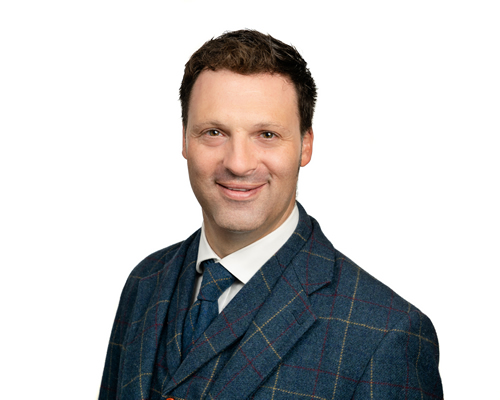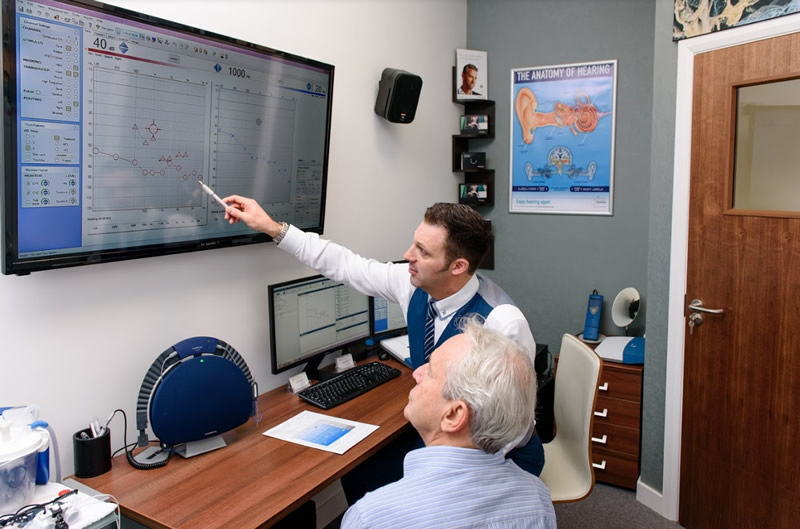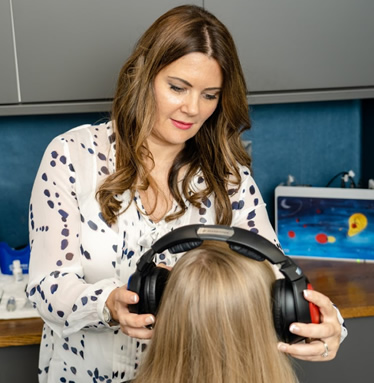We appreciate that, even though tinnitus is surprisingly common, that doesn’t make any difference to the sometimes debilitating effects it can have on your life. Many of our clients ask ‘how can I get rid of Tinnitus quickly?’ so that they can reclaim their lives. Regain Hearing is proud to have launched our latest and most advanced personalised tinnitus treatment after over a decade of research and testing.
Led by Lindsay and Lee Fletcher, our Directors and Principal Audiologists, we have been conducting industry-leading work into exciting, innovative ways to map, target, and quickly reduce tinnitus symptoms, with treatments providing immediate relief.
We recommend every prospective client review the testimonials from other valued customers, including video reviews, to demonstrate how effective a customised tinnitus therapy can be and why results reduce tinnitus sounds in one session, with follow-up treatments to eliminate the noises once and for all.
If you’re looking for more information about treating your tinnitus quickly, get in touch with us today and book an assessment.
Key Takeaways
- Advanced Personalised Tinnitus Treatment: Regain Hearing has developed an innovative, personalised tinnitus treatment after over a decade of research, aiming to provide immediate relief by mapping and targeting tinnitus symptoms.
- Comprehensive Diagnostic Approach: Effective tinnitus treatment begins with thorough assessments, including audiological exams, video otoscopy, and pressure testing, to identify underlying causes and tailor solutions accordingly.
- Rapid and Effective Solutions: By understanding the specific nature of each client’s tinnitus, Regain Hearing offers customised sound cancellation therapy and other targeted treatments that can significantly reduce or eliminate tinnitus symptoms quickly.
Why Have Conventional Treatments Been Ineffective in Reducing Tinnitus?
Tinnitus is incredibly difficult to treat because it occurs for myriad reasons and presents differently in every person. For some, tinnitus might be a minor nuisance they can ‘dial out of’ and ignore. For others, it is distressing, has a serious impact on their ability to sleep or communicate, and can contribute to severe side effects and secondary conditions, including depression.
There is varied self-help advice that may provide some quick relief from the intensity of your tinnitus symptoms. The Tinnitus UK website offers further advice about lifestyle changes, sleep hygiene, and other potential ideas.
However, part of the puzzle is that, in many cases, clients tell us they have been diagnosed with tinnitus based only on their symptoms. That could mean there are other causes, contributing factors, a medical condition, or something that seems unrelated, which is the reason for their tinnitus symptoms or is making them much worse.
The first step in any tinnitus treatment strategy is a full and thorough series of checks and tests. These help us determine why your tinnitus is occurring and whether there are quick and simple resolutions we can suggest.
Types of Tinnitus Testing We Offer
While not an exhaustive list, our skilled audiology teams routinely recommend the evaluations below to help us determine any contributing factors that need to be addressed before treating tinnitus symptoms.
- Video otoscopy assessments use a tiny camera to examine the inside of the ear and determine whether there are signs of infection, blockages, inflammation, or other issues.
- Pressure testing looks at potential infections, fluids, and tears in your eardrum. Also called tympanometry, ear pressure exams take just a couple of minutes and analyse the condition of your middle ear.
- Full audiological exams are conducted using sound transmitted at different ranges, frequencies, and pitches to determine which sounds you can and cannot hear. The health of each ear is compared one at a time.
A wider explanation of the varied hearing tests we offer is available through our Hearing Tests service page.
How Does My Perception of Tinnitus Sounds Impact My Treatment Options?
Tinnitus can sound very different to two people. It could sound like a whooshing, buzzing, ringing, humming, or something entirely different. The Hearing Link website has a more detailed list of sounds that tinnitus sufferers experience and the percentages to whom these symptoms apply.
Why does this matter? Although tinnitus is a well-known term, it also refers to a broad scope of hearing conditions and symptoms linked to hearing loss that can have different origins.
- A clicking sound is normally associated with muscle contractions within your ear, whereas a noise described as humming or pulsing is often connected to blood pressure. If your tinnitus worsens when you stand up quickly or exercise, that’s a good sign that medication to manage undiagnosed high blood pressure will offer great relief from tinnitus.
- Other clients might describe their tinnitus as a ringing noise. If we find a blockage in their ear canal and remove it immediately, the tinnitus may also cease to be a problem.
- Higher-pitched ringing noises are the most common, and although this is typically related to previous or ongoing exposure to loud and persistent noises, it can also be a reaction to a prescribed medication, which you hadn’t released has any correlation with your tinnitus symptoms.
Therefore, the hearing and tinnitus tests we suggest routinely reveal a rapid and effective fix, whether treating high blood pressure, removing blockages in the ear canal, or switching to a different medication.
In other scenarios, we might verify that there are no other causes or factors and move on to developing a tinnitus treatment plan—but if you’ve been diagnosed with tinnitus without a proper series of assessments, now is the time to book an appointment at your nearest Regain Hearing clinic.
Which Tinnitus Treatments Will Work Fast?
As we’ve explained, an underlying issue might be resolved within one appointment, either stopping your tinnitus symptoms or reducing them to a more manageable level. The traditional options after that usually include:
- Noise suppression or masking, where white noise machines and other devices attempt to drown out the tinnitus.
- Counselling to help you cope with the impacts of tinnitus or learn techniques to pay less attention to noise.
- Medications to treat stress or anxiety that is either causing the tinnitus or that has emerged as a side effect and is impacting your ability to manage.
The challenge is that none of these remedies is likely to provide truly effective treatment, nor will they usually contribute to the elimination of your tinnitus over time.
Our tinnitus treatment is different. Following hearing tests and evaluations, we move on to an in-depth process where we map and log the exact symptoms and sounds caused by your tinnitus.
Grading your tinnitus is key since it helps us create a customised sound cancellation therapy that precisely matches the sound your tinnitus creates. Along with other therapies, high-quality hearing aids, where required, and regular check-ups can provide rapid relief and long-term protection from the chance of tinnitus returning.
You can learn more about tinnitus treatments from Regain Hearing online or contact us to book a private consultation, where we’ll be happy to answer any questions you have.
Realated reading: How to get rid of tinnitus – the ultimate guide.









